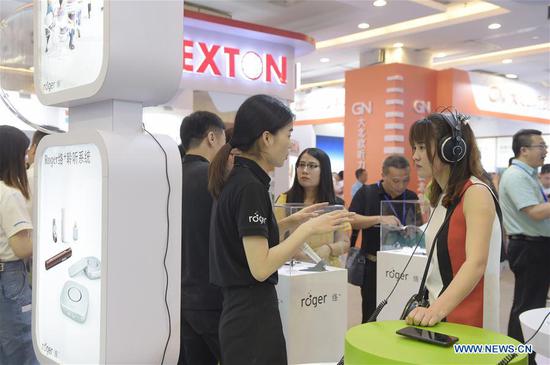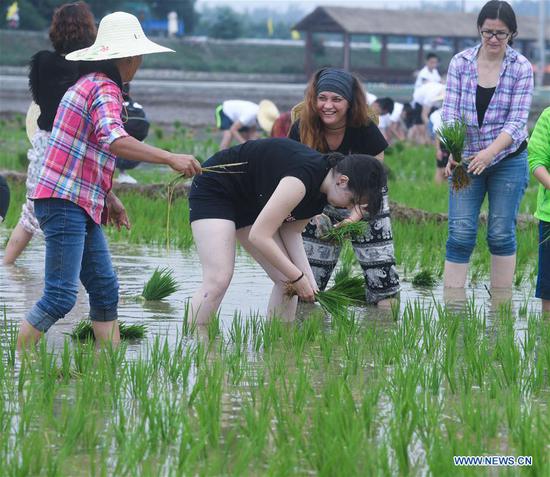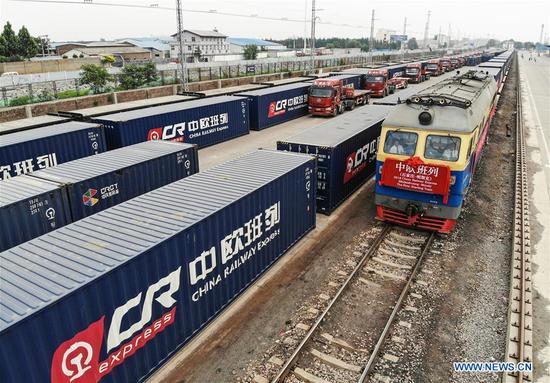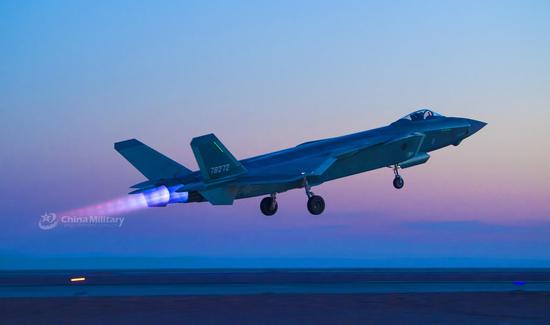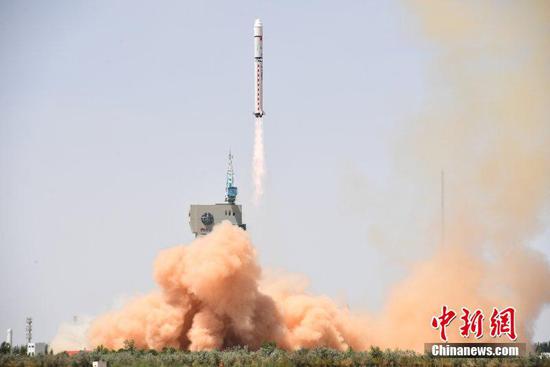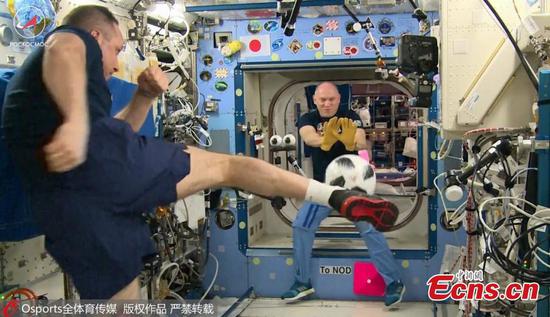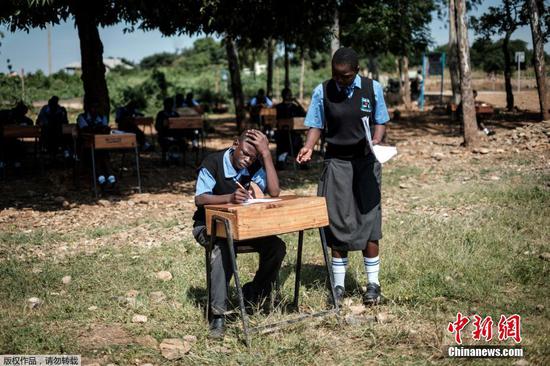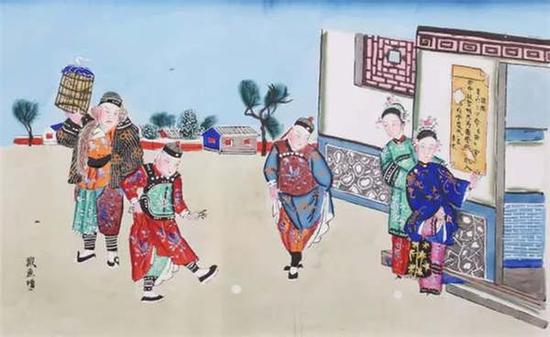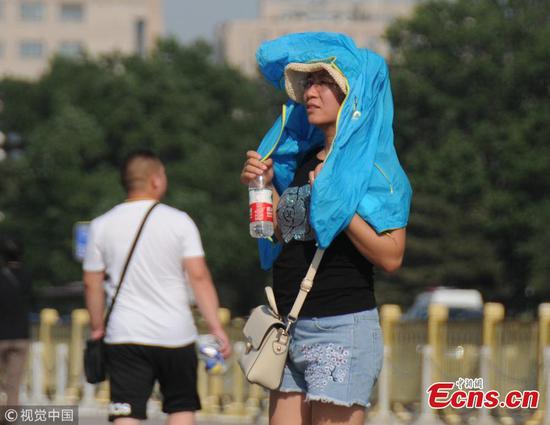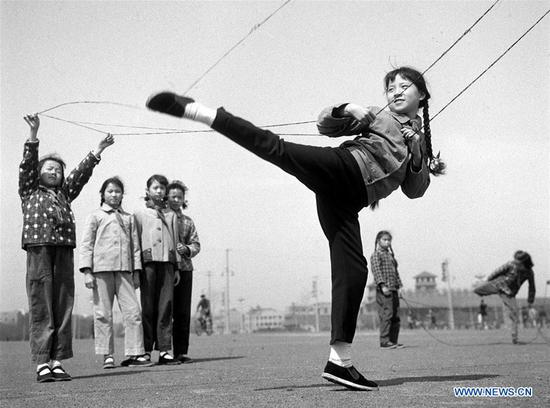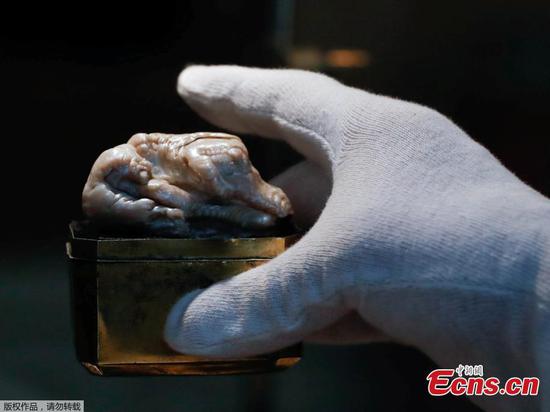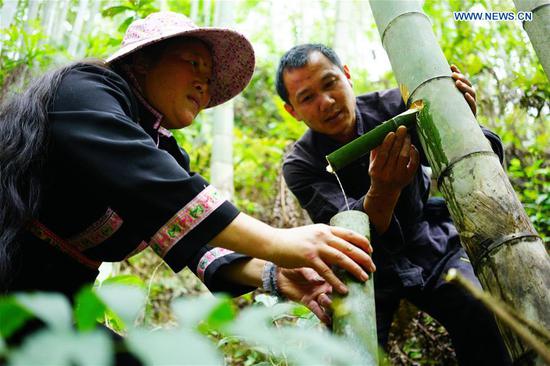China still insists both sides meet in middle to avert further action
China and the United States achieved positive and concrete progress in the fields of agriculture and energy during the latest round of trade consultations, with the details subject to finalization by both sides, according to a Chinese statement issued on Sunday.
While acknowledging the positive development, the statement emphasized that the results achieved between China and the U.S. should be based on the condition that the two sides meet each other halfway and agree not to engage in a trade war.
If the U.S. introduces trade sanctions, including tariff increases, all the economic and trade achievements negotiated by the two sides will not take effect, according to the statement.
The statement came after Vice-Premier Liu He held talks with U.S. Secretary of Commerce Wilbur Ross in Beijing on Saturday and Sunday. The talks were a continuation of the China-U.S. trade and economic consultations in Washington two weeks ago.
China reiterated in the statement that its attitude has been consistent and it is willing to increase imports from numerous countries around the world, including the U.S., to meet the Chinese people's growing demand for a better life and the requirements of high-quality economic development.
Sunday's statement also emphasized that reform and opening-up as well as boosting domestic demand are China's national strategies and the established pace (of implementing the strategies) will not change.
Experts viewed the statement as a reflection of China's desire to resolve the trade disputes and to respond to external challenges by firmly upholding its reform and opening-up policies.
"China is pursuing long-term goals and is trying to focus on upgrading its economy and meeting the growing demand of domestic consumers while the U.S. is seeking short-term gains. Judging from the talk results, the country (China) has ensured its core interests," said Mei Xinyu, a researcher at the International Trade and Economic Cooperation Institute, part of the Ministry of Commerce.
Mei pointed out that greater energy imports, such as crude oil and natural gas, from the U.S. at reasonable prices could help China reduce its manufacturing cost and boost the sector's strength in the world market.
"China had already planned to import the goods it agreed to purchase from the U.S. a long time ago. Therefore, it will not be an issue if China imports more U.S. energy and agricultural products," he said.
Dong Yan, director of the International Trade Office at the Institute of World Economics and Politics of the Chinese Academy of Social Sciences, said that China's reform and opening-up have been a consistent policy, which cannot be hindered by external pressure of trade conflicts.
Dong warned that a trade war will not only hurt China and the U.S., but it will also become a drag on the global economy.
"The firm stance on opening the market wider is China's response to the challenges facing the global economy. It illustrates the country's inclusiveness to share opportunities with the rest of the world and to fulfill its responsibilities," she said.
Zhang Yansheng, a researcher at the China Center for International Economic Exchanges, said boosting imports will be an important policy of China for the next step as it will increase the interconnection the country has with the world.










